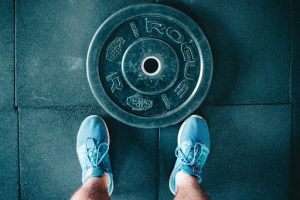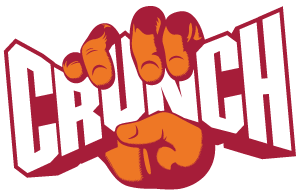Losing weight is a common goal for many people, but what isn’t spoken about as much is losing regained weight.
Many people end up regaining lost weight due to changes in lifestyle, health issues, or simply falling off track with healthy habits. There’s a big difference between weight loss and fat loss, which we’ve dived into before.

Tips for Losing Regained Weight
Losing weight, especially if they’re kilos you’ve lost and gained back, requires a focused and sustainable approach to ensure the weight that’s lost is healthy. In this blog post, we’ll provide helpful tips and strategies for losing regained weight and getting back on track with your fitness goals.
Assessing the Reasons for Regained Weight
First, it’s essential to understand the reasons why you initially lost weight and why you regained it. Revisit your initial weight loss goals and assess whether they were realistic and sustainable. Identify any lifestyle changes or habits that may have contributed to your weight loss, such as increased exercise, changes in eating habits, or underlying health problems.
Have you ended up sitting more or being more sedentary day to day?
Have you changed your eating habits and started eating out more?
Have you cut out foods you enjoyed leading to a binge?
Were there any underlying health problems that led to weight gain?
These are all important questions to ask yourself and will help determine the best course of action for losing the weight regained. If you have any underlying health problems, then it’s important to speak to your GP or Doctor before restarting any strength training or diet for best practices and advice.
Adjusting Calories and Macronutrients
Once you’ve identified the reasons for the weight gain that has occurred, it’s important to adjust your calories and macronutrients accordingly. Now there are a few things to consider when calculating your calories that will affect your new calculation.
Metabolic Adaptation and Creating a Calorie Deficit
Metabolic adaptation is a process that occurs when you lose weight, and your body adjusts to the new lower weight by slowing down your metabolism. This happens because your body is trying to conserve energy and maintain the weight it has lost. As a result, your body becomes more efficient at using the energy it has, and you may need to adjust your calorie intake and exercise routine to continue losing weight.
If you have gained weight and want to lose it, the same principles apply. Your body will still undergo metabolic adaptation as you lose weight, and you may need to adjust your calorie intake and exercise routine accordingly. The important thing is to create a calorie deficit, which means you are consuming fewer calories than you are burning. This can be achieved through a combination of diet and exercise.
- Calculate your estimated calories at your current weight and macronutrients prioritising protein at 35%, healthy fats at 30% then carbohydrates at 35% for balanced macronutrients.
- Calculate estimated calories at your goal weight including macronutrients again prioritising similar macros to those above.
- Compare your current calories and macronutrients to the two numbers, if you’re lower than the first calculation don’t worry, start by decreasing by 10% total calories, increasing your protein to the level calculated and fats next.
- Give yourself two weeks on those macronutrients, tracking your nutrition, weight, and food intake to see how your body adjusts, you’ll probably see a slight increase just due to a decreased food volume but may then see no real change. Decrease another 10% and repeat this step.
- Continue to do this progressively by 5% after the two initial 10% decreases every two weeks. A healthy weight loss is 0.75-1kg per month so slow and steady wins the race especially if your goal is to minimise fat gain.
If you’re unsure about how to count your macronutrients here’s a useful blog to give you the lowdown.
Maintaining Health While Losing Weight
Now if you’re someone who’s reading this thinking great, but I just want to ensure I don’t gain the weight back that I’ve lost again and just be healthy then it’s still important to do the above calculations and bring your calories back up to maintenance calories. If we eat too little for too long and still have high output, then this can cause health concerns that we need to be aware of.
Low Energy Availability and the Importance of Balance
Low energy availability is where our day-to-day output (energy expenditure) is below a certain level of energy intake based on our fat-free mass. This can lead to high levels of cortisol, a decrease in leptin levels (metabolic hormone), lowered ghrelin (hunger hormone), lowered immune system and other things. So, it’s important to restore our bodies to a state of homeostasis (balance) after losing weight.
When it comes to losing weight in a healthy way and promoting muscle gain which is vital for improving day-to-day function, reducing the risk of osteoporosis, arthritis, and risking falls as we age, there’s the elixir of life – strength training.
The Benefits of Strength Training
Strength training will play a vital role not only in promoting muscle growth but improving how you move daily, by incorporating the essential movement patterns into your training such as squats, deadlifts, or hinge movements, pressing, pulling both vertical and horizontal and then some form of locomotion and rotational work you’ll be covering all the basics of functional movement.
Progressive Overload and Muscle Gain
If you’re looking to gain muscle mass then follow a simple principle of progressive overload which is where you progress the stimulus over time, this can be through increased weight, reps, sets, slowing down the tempo you are ensuring you are stimulating the muscle tissue to grow and with an increase in energy intake, including more protein you’re providing the essential building blocks to create an environment to promote muscle gain.
Tracking Progress and Energy Expenditure
This is where tracking progress becomes important, an increase in output through either exercise, building muscle, increased walking and movement can all contribute to energy expenditure so in the world of wearables, keeping tabs on things like steps, your strength and weekly activities will help you make better-informed decisions when it comes to increasing your calorie intake.
Don’t Be Afraid of Slow and Steady Progression
Like weight loss, when you’re gaining muscle, you’ll probably come across plateaus, experience setbacks or feel discouraged with a lack of progress, so this is a gentle reminder that like anything worth having in life, it takes time, patience, and consistency. Progress is not always linear so reminding yourself of how far you’ve come in your journey is the most important thing, taking progress photos every couple of weeks so you have comparison photos to compare can be a useful reminder and motivator that you’re on the right path!
Now if this all seems a little overwhelming and you don’t feel confident going at this alone then why not book a free consultation with one of our expert fitness trainers, or if you’re not currently strength training, we offer a free 3 day pass to try out our incredibly equipped facilities!
WANT A FREE GYM SESSION!?
Hit the link below to receive your FREE GYM PASS to your nearest CRUNCH Gym!
👉🏻 CLICK HERE


Crunch Fitness Virtual Assistant
 I'd like some help reaching my Fitness goals!
I'd like some help reaching my Fitness goals! I'm an existing member and would like some help!
I'm an existing member and would like some help! I have some questions about becoming a Crunch member!
I have some questions about becoming a Crunch member! AU
AU United States
United States Canada
Canada Costa Rica
Costa Rica Spain
Spain Portugal
Portugal NSW Clubs
NSW Clubs VIC Clubs
VIC Clubs